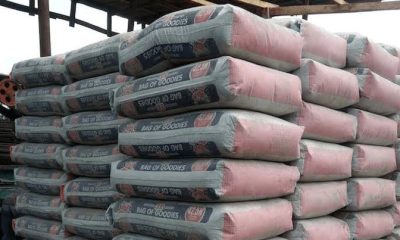Opinion
Backward Integration in Sugar, Cement and Now, Petroleum: Who are the real Beneficiaries?

First came Sugar… then Cement… now, petroleum refining. The cycle of seeking protectionist Backward Integration Policies to protect a few players in limited industries keeps repeating itself. Only in this case, what should strengthen our collective economy is protecting a few big businesses and shutting out others, therefore holding Nigerians to ransom.
Let us say it as it is: We have seen this before, with all sorts of ventures in various sectors. One of Nigeria’s biggest businessmen sets out to enter a new industry in a big way. Government pulls out all the stops to support the actualization of that dream with several incentives because presumably, “it will support the economy and make the products/commodity more accessible and affordable.”
What has always happened next is that the government-backed backward integration plan is championed by this same player who is almost always a first mover in the private sector. What follows is a systemic closure of the operating space to others starts to occur, amid as well as a gradual increase in price. This is despite local production of said commodity going up. Why then does Nigeria keep granting such policies to favor a few despite the benefits not trickling down as promised? Have these so-called backward integration programmes ever helped or done so sustainably?
Let us take a look at the Nigerian Sugar Industry – a glaring example of the success and failures of a protectionist Backward Integration Policy (BIP). Twenty years ago, during the then President Olusegun Obasanjo-led administration, the Backward Integration Policy of the Nigerian Sugar Industry was championed to ensure that the “big three” Sugar refineries – Dangote, BUA and Flour Mills developed sugar plantations and were able to use homegrown sugar to substitute imported raw sugar. This was intended to bring down the price of locally available sugar as well as deepen the Nigerian sugar industry. Has it worked so far? Is sugar cheaper? Is the market more accessible for smaller players?
Twenty years ago, Dangote Group took over Savannah Sugar after acquiring it in the privatization process. How have they fared? Many suggest Savannah Sugar may be poorer for it. Asides marginal investments in new sugar fields, nothing else appears to have been done. Till date, the plantation has received no major upgrade and still cannot produce white sugar because it has no sugar refinery on site. About five years later, Flour mills of Nigeria, producers of the Golden Sugar brand, took over their own Sunti BIP site.
Despite receiving over 40billion Naira in FG intervention funds, their Sunti backward integration site still cannot produce edible sugar and only has a sugar mill similar to the one at the Dangote’s Savannah Plantation. The third producer, BUA is hardly any different. BUA took over its own Lafiagi site 10 years ago and didn’t start on time in developing the site. They claimed it was due to the government not handing over the land and associated infrastructure till 2014. Till date, work on their Sugar refinery and ethanol plant on site in addition to its plantation is still some way behind – just like the Dangote and Flour Mills, on delivering on their agreed BIP deliverables. Which serious companies take one to two decades to put the right things in place?
What has this led to? Prices of sugar have grown astronomically since the BIP programme started, even hitting NGN25,000 per bag during the COVID pandemic. It took a public outcry and the intervention of the government for prices to be reduced. Word on the street is that there may be another price increase towards the Muslim fasting period. Why is it that sugar is always expensive at this time of the year? Who shall successfully regulate these all-powerful oligarchs? New players are finding it difficult to break into the industry and those who try to are summarily pushed out.
To make matters worse, it seems there is also oppression among our oppressors. Any of the players who tries to break ranks is ganged up against by the others, as possibly demonstrated by with the recent debacle on BUA’s new export focused sugar refinery in the Bundu Free Zone in Port Harcourt. A recent leaked memo written by the two other players to the Minister of Trade urged the Minister to shut down BUA’s operations in Port Harcourt, despite the fact that increased operations would potentially solve supply side issues and by extension bring down the price of the finished commodity – issues – even when necessary duties are paid to bring the sugar into mainland Nigeria. To put it in simpler terms – imagine a sugar company unable to meet its target fighting for the shutdown of another, even when revenue is being expended to import sugar into mainland Nigeria. What hope then exists for the smaller producer or the consumers, who bear the brunt of these machinations?
It doesn’t end with sugar; Nigerians have witnessed the same thing with the Cement Industry, with the same cast of characters. Despite a series of waivers, pioneer status incentives and a backward integration policy championed initially by Dangote Cement and later enjoyed by Lafarge and BUA – the two other players in the Nigerian Cement Industry, retail prices of cement have grown astronomically in a way that makes everyday Nigerians question the benefits of Backward Integration in the Cement Industry. In a recent interview, BUA Chairman Abdul Samad Rabiu who is a part and beneficiary of this system, ironically admitted that Nigerians are paying the highest for cement in most of Africa. His peers have not considered Nigerians worthy of hearing such truth, preferring to keep mum.
I must say, a Backwards Integration Policy should not create more unwieldy, extremely profitable monopolistic enterprises that somehow end up holding Nigerians by the pocket and therefore by the jugular. Rather, such policies should engender a more open, competitive industry, giving opportunities to all comers without the fear of the system and a few players frustrating them.
At a briefing over the weekend, Nigerians were shocked to learn again that one of these same players who is building a 600,000barrels per day petroleum refinery, is actively pushing for purchases of Crude in Naira as well as a new backward integration policy for refineries. This was more or less confirmed by the recent visit of the Senate Committee visit to the Dangote Refinery last week.
Here’s the clincher – the same company which has benefited immensely in other sectors to the detriment of Nigerian consumers are now requesting that this policy should only be extended to those who have ACTIVE refining licenses. What this means – just like in Sugar and cement, is that only these companies with active licenses will be able to import these products into Nigeria. This will effectively narrow the market for Dangote’s 600,00barrels per day refinery. In view of their current plans, the Dangote Group will be the only ones to enjoy the benefits of this policy and possibly, BUA, when its own 200,000 barrels per day refinery comes up in 2024.
What is baffling however, is that this policy if instituted, will ensure that only the usual elite group will be able to import petroleum products, just like we have seen in Sugar and Cement. It will also ensure that even our dear own NNPC will be forced to buy its refined petroleum products from these companies, ensuring unsustainable profits and arbitrary price fixing which is detrimental to Nigerians. Crude oil across the world is sold in dollars. Why will they pay for our crude in Naira and then sell back to Nigeria in dollars? The same thing will likely apply to BUA and these two companies may as well be controlling over one-third of our GDP.
Here’s the clincher – the same company which has benefited immensely in other sectors to the detriment of Nigerian consumers are now requesting that this policy should only be extended to those who have ACTIVE refining licenses. What this means – just like in Sugar and cement, is that only these companies with active licenses will be able to import these products into Nigeria.
This will effectively narrow the market for Dangote’s 600,00barrels per day refinery. In view of their current plans, the Dangote Group will be the only ones to enjoy the benefits of this policy and possibly, BUA, when its own 200,000 barrels per day refinery comes up in 2024.
What is baffling however, is that this policy if instituted, will ensure that only the usual elite group will be able to import petroleum products, just like we have seen in Sugar and Cement. It will also ensure that even the NNPC will be forced to buy its refined petroleum products from the companies, ensuring unsustainable profits and arbitrary price fixing which is detrimental to Nigerians. Crude oil across the world is sold in dollars. Why will they pay four our crude in Naira and then sell back to Nigeria in dollars? The same thing will likely apply to BUA and these two companies may as well be controlling over one-third of our GDP.
To rescue our country, the Government must do away with the truly backwardness of these Backward Integration Policies, except it guarantees truly free markets. It has never worked for Nigerians. Rather, it has only worked to help a few people boost their already fat pockets. At this rate and if left to subsist, Nigerians could likely end up paying triple for petrol as has happened in Sugar and Cement.
The Policy of backward integration as implemented thus far has only enabled a monopoly that strangles the country’s chances at sustainably developing her commodities market and we must not mortgage our oil in this manner. The government must force these oligarchs to sit down and renegotiate all terms in these core industries as is being done in other countries like Senegal, for example.
Bottomline is, Nigerians and their stake in the oil industry appears to be heading towards a precarious end. So I ask again: BACKWARD INTEGRATION IN SUGAR, CEMENT AND NOW, PETROLEUM: WHO ARE THE REAL BENEFICIARIES? Certainly not Nigerians.
Tayo Irantiola writes from Lagos Nigeria…






